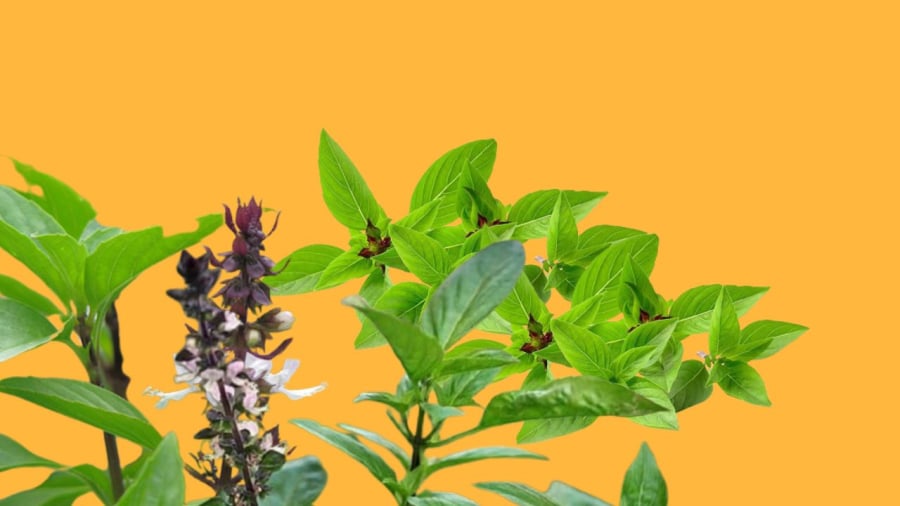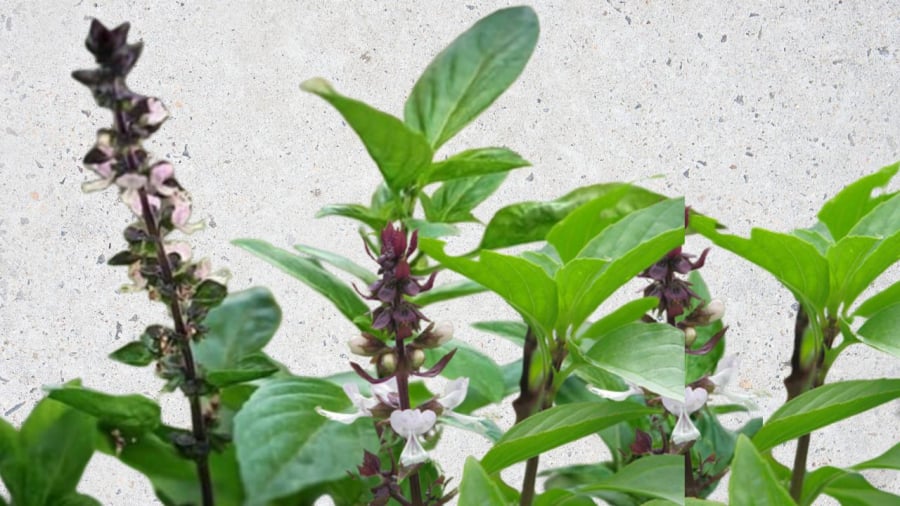Elevate Your Space with Basil: Unlocking the Plant’s Feng Shui Potential
Basil, a familiar herb in the culinary world, is taking on a new role as a Feng Shui plant. Often used to enhance dishes, especially those featuring pork and duck, basil is now being recognized for its ability to bring prosperity and good fortune to homeowners.
In Indian culture, basil is considered a sacred plant, associated with the gods. With its distinctive aroma, basil requires minimal care and offers a plethora of benefits. Its leaves grow upward, symbolizing growth and abundance, making it an attractive addition to any home.
Not only does basil enhance the aesthetic of your space, but it also acts as a natural air purifier, promoting a positive flow of energy. The aromatic essential oils released by the plant have a calming effect on homeowners, inviting good luck while warding off negative energies.

Basil: The Familiar Flavor Enhancer
Basil is remarkably low-maintenance and resistant to pests and diseases. Growing it in a small pot with rice water is sufficient to yield a healthy harvest. This resilience has earned basil a reputation as a sacred plant.
Unlocking the Power of Placement: Finding the Best Spot for Your Basil Plant
According to Feng Shui principles, the ideal directions to place your basil plant are North, East, or Northeast. These directions are believed to attract wealth and abundance. Consider placing your pot on a window sill, balcony, or by the entrance of your home, ensuring sufficient sunlight while avoiding harsh direct light.

Basil Plants Thrive in the North and East Directions
A Simple Guide to Growing and Caring for Your Basil Plant
Growing basil is straightforward. You can either sow seeds or propagate through cuttings. Cuttings tend to grow faster. Use a pot with a height of approximately 20cm, and ensure the soil is moist. During the initial propagation phase, maintain moisture and protect the plant from pests like mice and ants. While watering, avoid wetting the leaves, and keep the plant away from harsh sunlight to prevent leaf burn.
Basil requires minimal care; simply water it with rice water or soybean soak, and apply fertilizer to the roots. The more you harvest the basil, the more it will branch out and grow new leaves.
Unlocking the Power of Basil: Discovering the Plant’s Multifaceted Benefits
Cancer Prevention: Basil’s essential oil contains compounds that may help inhibit the growth of cancer cells, making it a valuable ally in the fight against cancer.
Stress Relief: The unique aroma of basil has a calming effect on the nervous system and can alleviate pain. Research in India suggests that basil helps maintain normal levels of cortisol, the stress-inducing hormone. Chewing on a few basil leaves or crushing them to release their essential oils can promote relaxation.
Headache Relief: Basil’s essential oil can provide relief from pain associated with sinusitis, allergies, colds, and migraines. It can be consumed as a tea or eaten directly.
Skin Benefits: Basil leaves detoxify and improve blood circulation, leading to clearer skin. Try using basil water as a facial cleanser or apply it to treat acne.
Remedy for Cough and Sore Throat: Basil’s antibacterial properties make it an effective remedy for gum inflammation, coughs, and sore throats. The plant’s compounds, including camphene, eugenol, and cineole, help reduce swelling.
Oral Health: Chewing on basil stems and gargling with the extracted juice can reduce gum inflammation and promote whiter teeth.
Digestive Aid and Constipation Relief: Basil can provide relief from bloating and constipation. Simply chew on a few basil tips to ease these discomforts.
Insect Repellent: Basil’s fragrance repels flies, mosquitoes, ants, and cockroaches. Place a pot of basil near your windows or in the kitchen to keep these pests at bay. You can also crush basil leaves and rub them on your skin as a natural mosquito repellent.
Growing basil is an easy way to ensure a steady supply of fresh herbs and unlock a range of health and Feng Shui benefits.
Disclaimer: This information is for reference only and should not be solely relied on for decision-making.





































